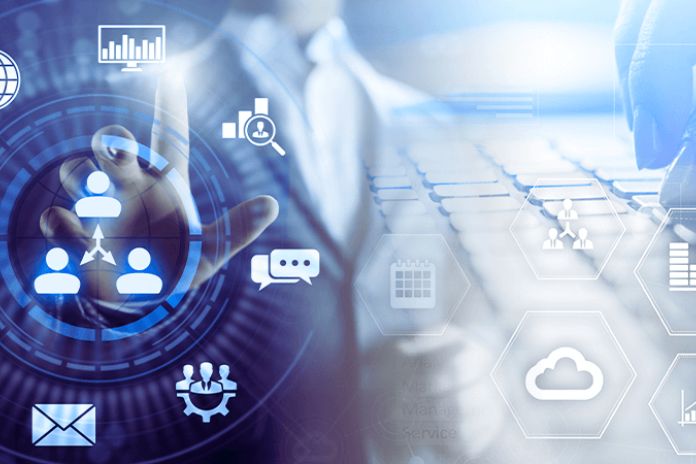Technological tools are great allies for more organized management in a company. Today, it is possible to find software that helps with internal and external issues, such as CRM and ERP, for example.
These tools help optimize processes and customer relationships. This way, it is possible to reduce errors and risks and improve team productivity.
But, after all, which of these two tools to choose? Next, we will explain a little more about each of them. Good reading!
What Is CRM?
Offering excellent service and understanding the needs of the target audience is one of a company’s most significant concerns. To facilitate the analysis of this data accurately, you can rely on CRM, a tool aimed at managing relationships between people.
By understanding what your audience needs, the sales cycle will be shorter and more profitable. Furthermore, CRM makes the sales team’s work more accessible and optimizes commercial sector processes. Among the benefits offered by the tool, we can mention:
- Process organization
- Greater productivity
- Sales opportunity management
- Understanding the consumer journey
- Alignment with marketing
- Recording customer history
- Automation of relationships
In this sense, CRM contributes to the integration and consultation of information. Thus, it creates a common language for all sectors about customers.
What Is ERP?
ERP, Enterprise Resource Planning, is a solution that allows you to integrate and standardize processes, optimizing the functions of the entire team. In other words, the tool is suitable for internal operational processes.
To achieve this, the solution comprises several modules that correspond to the company’s sectors: people management, financial, and administrative, among others.
The tool aims to connect the company’s information flows simultaneously. Thus, all sectors will be informed strategically and dynamically, facilitating access to the data necessary for each service. Consequently, the company becomes more agile in decision-making.
Among the main benefits of ERP, we can mention:
- Increased productivity
- Cost reduction
- Integration between sectors
- Strategic alignment
- Data analysis
Furthermore, the automated process eliminates the use of paper, printing, and movement between one sector and another. Therefore, the initial cost, over time, will be compensated with increased efficiency and productivity.
Difference Between CRM And ERP
Briefly, the main difference between CRM and ERP is the primary function of each tool. While CRM manages customer relationships, ERP aims to optimize internal processes.
Therefore, ERP works in administrative tasks, such as financial management, accounts payable and receivable, issuing invoices, and inventory control, among others.
The main objective is to integrate the different areas and ensure more efficient communication between departments.
CRM, in turn, is software aimed at relationships between people. Therefore, it seeks to understand the target audience’s pain points and reduce the time of the purchasing cycle. This makes the process more profitable for the company and satisfactory for customers.
Now that you know the difference between CRM and ERP, understand there is no need to limit yourself to using one or the other. Integrating these two systems can increase the efficiency of the business as a whole.
After all, when you improve internal processes and the relationship with the market, you create an ideal environment to generate more value for your audience.
Why Should CRM And ERP Work Together?
As we said, both tools are fundamental to the company’s daily activities. By integrating the commercial sector with the financial department, it is possible to carry out negotiations with more agility and security. Contact with customers and new leads only benefits from managing the administrative routine.
Another example of integration between CRM and ERP is purchase orders. When they are completed, the commercial sector sends them to stock, saving time in separating and delivering the items.
The sales team will also be able to stay up to date with internal changes, such as new pricing methods, for example. This way, they can adapt to the best way for salespeople to act throughout the sales and customer relationship process.
Furthermore, the manager will have a broader view of the entire process and the performance of each sector. This way, you will be able to analyze in detail the positive points and what needs to be improved within the company.
Also Read: CRM Software In Construction Company

